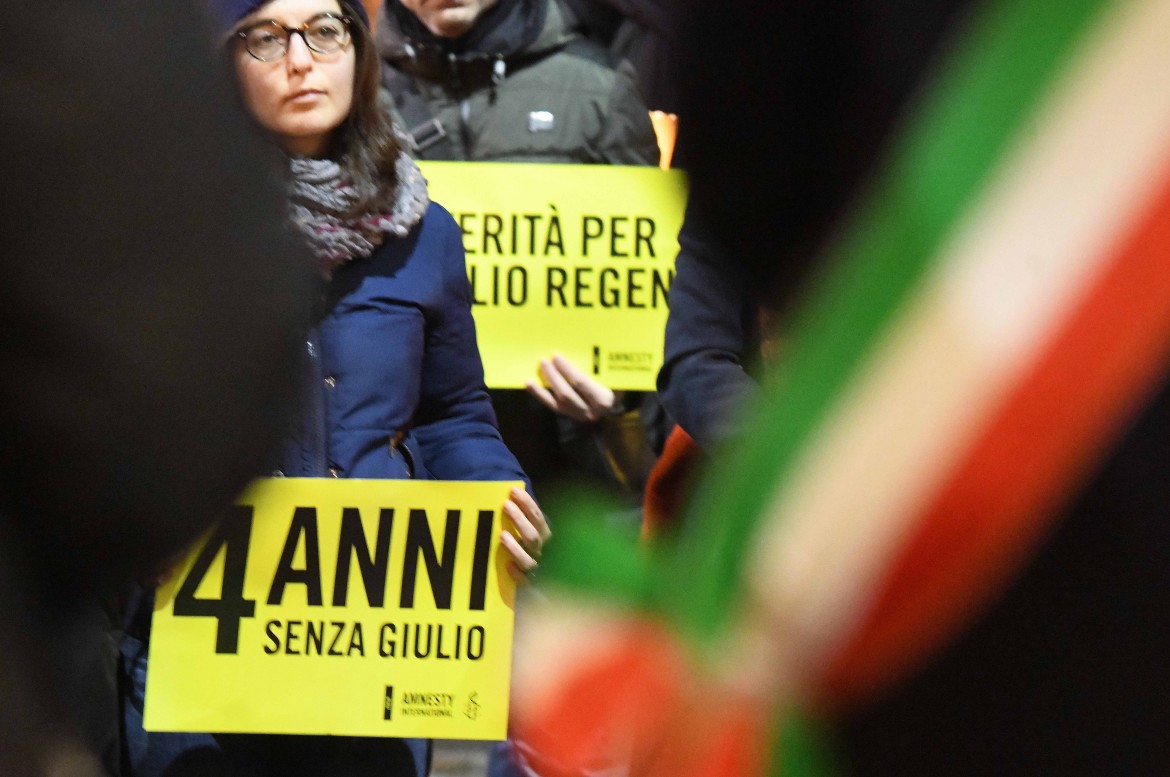Analysis
How Egyptians disappear: the secret service and an absurd definition of ‘terrorism’
'The Supreme State Security Prosecution has stretched the definition of ‘terrorism’ to include peaceful protests, social media posts and legitimate political activities.'

“The SSSP has turned Egypt into one big terrorist group,” says a lawyer defending those accused before the Egyptian Supreme State Security Prosecution (SSSP), describing the institution that is one of the most effective tools in the complex repression machine set up by General-President Abdel Fattah al-Sisi since July 2013.
These words were quoted in the detailed report drawn up by Amnesty International and published in November with the title of “Permanent State of Exception”, collecting 138 testimonies in its 60 pages and painting a clear picture of the role of the Supreme State Security Prosecution in the forced disappearances and, later on, the political detentions, featuring abuses, torture and the violation of the principles of a fair trial.
Created in 1953, the year after the coup d’état of the Free Officers against King Faruq, the SSSP is an integral part of the Egyptian Attorney General’s Office. It should be highlighted that this is precisely the institution that for years has been promising cooperation to the Public Prosecutor’s Office of Rome, which is investigating, amidst plenty of misdirection and silence, the murder of Giulio Regeni.
The SSSP, which has jurisdiction over Greater Cairo, the metropolitan area of the capital, of almost 1,800 square kilometers and where over 20 million people live, has the power to investigate and prosecute all activities it deems a threat to national security: terrorism, but also protest marches, strikes and popular assemblies.
It works in close contact with the National Security Agency (NSA), the Egyptian secret services, the former SSIS: this latter institution can investigate independently or by order of the Supreme State Security Prosecution, to which it hands over the case files afterwards; the SSSP issues the arrest warrants and the secret services execute them. Then, pre-trial detention starts, technically for a maximum of 15 days, but which can be renewed every 45 days without limit.
The seven men that Piazzale Clodio has identified as among those responsible for the tailing, the kidnapping, the murder of Giulio Regeni and the subsequent cover-up belong to the top management of the NSA. As Amnesty explains, “several prosecutors at the SSSP are former NSA officials; others are relatives of President al-Sisi and other top government officials.”
It is an efficient and well-oiled machine of repression that revolves around the president and implements his agenda, namely that of the total annihilation of the Egyptian people. It’s enough to look at the figures included in the report: in 2013, the year of the coup against President Morsi, there had been 529 cases prosecuted by the SSSP, but by 2018 the number of cases tripled, up to 1,739.
For 2019, data is available only until October 30, counting 1,470 cases. But these don’t correspond to individual persons, as some case files involve a number of people: for instance, case number 1338/2019, relating to the street protests against corruption and patronage that began last September in several cities, involves 3,715 Egyptians, arrested mostly as a result of nighttime raids and searches at their homes.
It is an enormous and pervasive crackdown, which is catching politicians, activists, journalists, but also ordinary citizens in its dragnet. All under the comfortable pretext of anti-terrorism and the state of emergency (uninterrupted since 2017), thanks to the law that al-Sisi wanted approved as soon as he came to power and which, since that time, has allowed him to prosecute anyone without any limits, using preventive detentions that last for months or years without ever coming to trial.
“The Supreme State Security Prosecution has stretched the definition of ‘terrorism’ to include peaceful protests, social media posts and legitimate political activities,” explained Philip Luther, Amnesty’s Research and Advocacy Director for the Middle East and North Africa. “The Supreme State Security Prosecution has become a central tool of repression.”
The NGO based its research on 138 cases of people arrested by the SSSP between 2013 and 2019. They analyzed judicial documents, minutes and interviews, and found that out of the 138 cases, 53 were detained for protests or posts on social media (32 men, 23 women and one minor), 76 for past or present political activities (48 men, 27 women and one minor) and six on charges of having committed acts of violence (three men and three minors).
In 112 cases, the detainees disappeared for months, up to 183 days, without anyone knowing anything about their whereabouts. Lawyers and family members knew nothing, but the Supreme State Security Prosecution did, as the suspects were brought before it for closed-door hearings without being allowed the assistance of a lawyer.
Finally, there is the most terrible of all its criminal complicities: the complicity in torture. Amnesty has documented at least 46 cases of torture out of the 138 detainees in the hands of the NSA—half of them carried out against women. They involved electric shocks, beatings, being hung by their limbs, virginity tests and threats of rape. Only in one case did the Supreme State Security Prosecution report the complaint about torture to doctors. And not a single police officer was ever investigated.
Originally published at https://ilmanifesto.it/servizi-segreti-e-procura-suprema-cosi-spariscono-gli-egiziani/ on 2020-02-09
